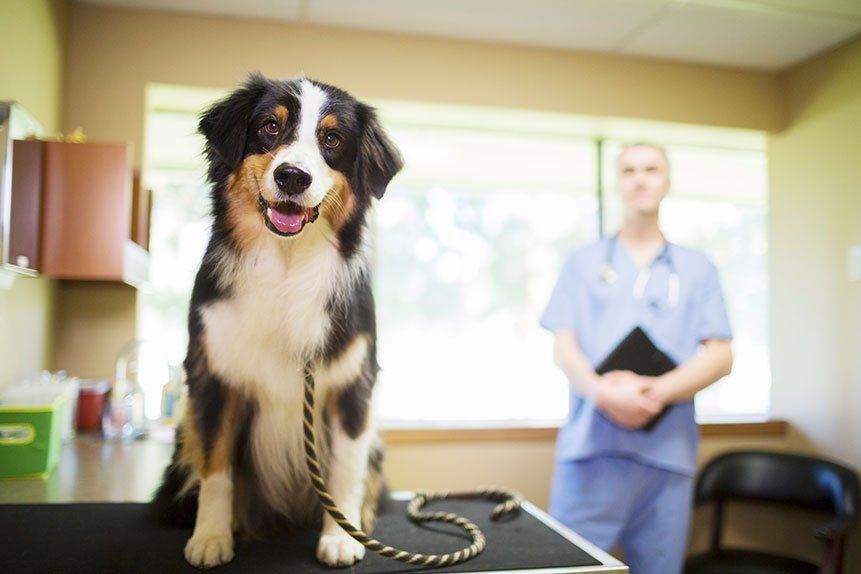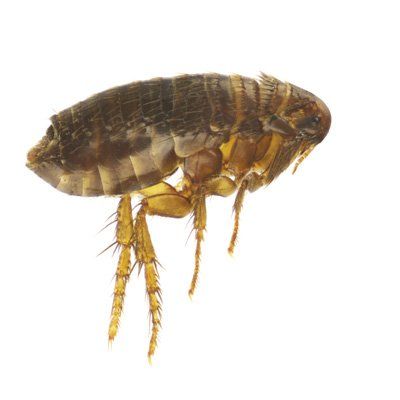








If you're a dog owner, it's understandable that you'd be worried about fleas, especially if you catch your pet scratching frantically. But what happens when you check for fleas and don't find anything?
Fleas aren't the only parasites that feed off of your pup. Ticks can be harder to spot because they don't jump around and there aren't as many of them — in fact, it could be just one causing all of that scratching.
Ticks carry a variety of diseases, including Lyme disease and Rocky Mountain spotted fever. While not every tick carries a disease, enough of them are carriers that ticks should be a cause for concern.
If you suspect your dog has a tick, check the most common locations for ticks first. They like to choose spots on your dog where there's less fur, like between the toes, around the ears, in the ears and in the skin folds.
Keep your eyes open for signs of tick-borne disease, most of which present with symptoms like weakness, fever, lethargy and joint swelling. If your dog has difficulty walking, they may be experiencing tick paralysis, which inhibits their ability to move and gradually becomes more severe, though tick paralysis is temporary and can usually be resolved by removing the tick.
Mange is another common cause of itching, and as with fleas and ticks, the culprit is a parasite — mites. The mites themselves are too small for you to see, but the itching is one of the one of the first symptoms owners notice. You may also spot red or scaly patches on your dog's skin.
There are several types of mange, including sarcoptic mange, which is basically canine scabies, and otodectic mange, which mainly affects the dog's ears and the area around them. But the most common type of mange in dogs is demodectic mange.
Demodectic mange is caused by Demodex mites, which are naturally found on your dog's skin, that cause mange when too many of them accumulate. Puppies are especially susceptible to demodectic mange (sometimes called "puppy mange") as are certain breeds, like Afghan hounds, Dalmatians, pugs, Shar-Peis and German shepherds.
If you suspect that your dog has mange, consult with a veterinarian. There are several treatments for mange, including anti-parasitic medications and medicated shampoos. A licensed vet knows the correct treatment for your pet.
Do seasonal allergies get you down? If so, you and your dog may have something in common. Dogs are susceptible to seasonal allergies just like humans are, but instead of uncontrollable sneezing and wheezing, your dog might be dealing with uncontrollable itching. Allergens like pollen can land on your pet's coat and skin and cause contact dermatitis.
You can also help your dog by using some of the same methods you would use to deal with human allergies, like vacuuming often and using a high-quality filter in your air conditioner.
Your vet may be able to prescribe allergy treatments for your pet. Unfortunately, antihistamines, which are commonly used to treat human allergies, aren’t necessarily effective. But other options like steroids and immunotherapy have more reliable results. Allergy testing can give you and your vet a clear idea of what your pet is allergic to and how to proceed.
Scratching doesn't always mean fleas, but it does mean that your pet is uncomfortable, so it's important to be able to identify the cause of the excessive scratching. If you can't determine what's making your pet itch, call Sylvan Corners Pet Hospital to make an appointment with one of our veterinarians.








HOURS OF OPERATION:
Closed everyday from 12PM to 1PM for Lunch
In Case of an after-hours emergency, please contact: Veterinary Specialty Hospital
1901 Douglas Blvd. Roseville, CA 95661
Phone: 916-783-4655
HOURS OF OPERATION:
Closed everyday from 12PM - 1PM for Lunch
In Case of an after-hours emergency, please contact: Veterinary Specialty Hospital
1901 Douglas Blvd. Roseville, CA 95661